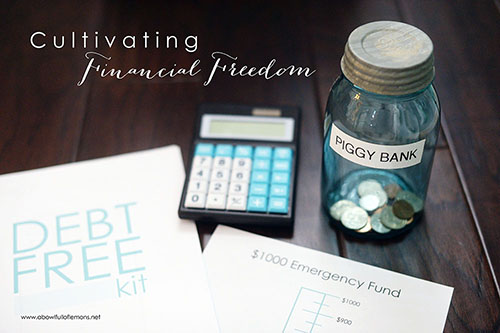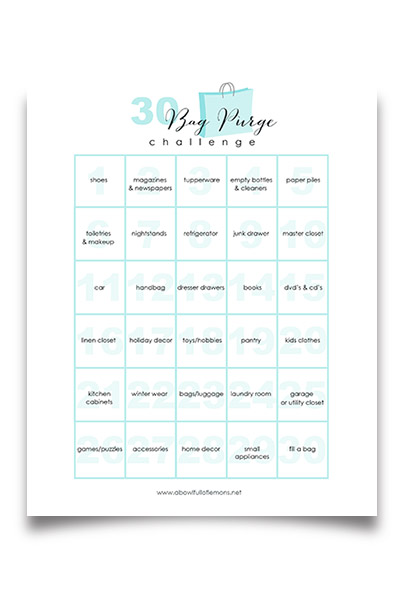In order to learn to manage money, kids need money to manage. (Yes, I know. I have a keen sense of the obvious.) And the way in which they receive and manage that money should fit as much as possible with grown-up reality since we’re not ultimately training them to be responsible kids, but responsible adults. There’s a whole lot that can be said about kids and money, but today I want to focus on establishing the connection between work and income.
Personally, I’m not a fan of giving an allowance. An allowance is an amount or share allotted or granted. That sounds like a no-strings-attached transaction, which doesn’t really fit with communicating that pay is the result of work. It can create an expectation of “You owe me {insert $ amount}” regardless of any effort on the child’s part. (Did anyone else’s mind jump to that 80’s movie Better Off Dead? “I want my two dollars…”)
A commission, on the other hand, is a sum of money that is paid to an employee upon completion of a task, usually selling a certain amount of goods or services. With kids, it’s associated with the completion of assigned jobs around the home or for the family.
It is an earned amount–not a grant. It is also not an assumed amount that a child starts with and then has a little deducted if he doesn’t follow through with responsibilities. If an adult doesn’t show up for work, her boss doesn’t figure she had good intentions and just deduct a little from her wages; she doesn’t get paid at all for that day!
The method you choose to implement for your kids to earn and manage money can be as detailed or as simple as you desire. There are lots of great options in books and all over the internet–both pre-made and DIY–and some may be a better fit for your family than others, but here are what I believe are the most vital steps:
Establish a System
The type of system doesn’t matter as much as simply having one. Your children need to know what you expect, what qualifies as a commission-based chore vs. personal responsibility, how you will pay, etc.
We have four children ages 13 down to 5, and after some experimenting and tweaking over the years, these are some philosophies and established points of our system. I share them not because I believe they’re only way to operate but to help you start thinking through your own family system.
- Our kids are fairly young, and we pay for their clothing, activities, and most of their entertainment, as it typically involves the entire family. So since they don’t have expenses, we do not pay a commission for tasks we consider matters of self-responsibility (such as picking up/putting away belongings, making their beds, and tossing their dirty clothes into the correct bins) or basic contributions as members of the family (such as unloading the dishwasher, folding laundry, cleaning up the kitchen after dinner, taking out the garbage, and a few general weekly cleaning chores). We view these kinds of tasks as ways that all of us pitch in and work as a team to keep our home a pleasant place to live. The older two (13 and 11) do a lot of the jobs listed above since they’re more capable. The younger two (7 and 5) help out in other ways such as putting away clean silverware, setting the table, wiping down the front of the dishwasher and oven doors, replenishing toilet paper in the bathrooms, changing out hand towels, and folding their own clean clothes. As our kids get older, they are assigned tasks that take a little longer and require more care. When they eventually have part-time jobs, their required contribution at home may change and even decrease in some areas, but their responsibility for personal expenses will increase.
- We give a commission for tasks and projects that are outside of the regular daily & weekly responsibilities. For our two youngest, that might mean gathering up small sticks in the yard, cleaning the insides of windows, or organizing toy bins in the basement. Our older boys get paid for jobs such as mowing the lawn, picking up pine cones, shoveling snow, and helping with our business. Some of these paid tasks are required and performed on a set basis. Others are project-based. I always try to keep a small arsenal of commission options I can assign when a child comes to me and asks “Is there something I can do to earn money?” I like to answer yes to this, because I want to encourage that kind of initiative.
 |
- The amount we pay is generally based on a combination of the child’s age and the time & effort involved in the task. For example, I’ll pay my five-year-old a quarter to clean windows, and he’ll do the four tall window panes in the living room up as far as he can reach while standing on the couch and will probably miss quite a few spots. But I’ll pay my 11-year-old a dollar, have him use a small stool so that he can reach to the top, and ask him to fix obvious spots he missed. They’re both giving their best effort, but my older son is doing a more thorough job, and a dollar in his economy is about the same as a quarter in his little brother’s.
Be Consistent
This is probably the hardest one, especially since it requires having cash and change in the correct denominations. But just as an employee expects to get paid regularly and according to an agreement, our kids should be able to count on us to follow through on our end of the system.
Since I like to give commission to our little ones right away so that they can see the connection between work and pay, I keep quarters on hand for this purpose. For our older two, sometimes they get paid right away, and other times it’s on the weekend. As they get older, it’s a good idea to move kids toward a periodic pay system since that’s what they’ll experience as adults.
Allocate and Track Income & Expenditures
Are you saying that kids should budget, too? Yes, that’s exactly what I’m saying! If they don’t have a plan, they’ll just spend their earnings willy-nilly. (Hmm, that sounds kind of like us adults!) It will be much more difficult for them to tell their money where to go as grown-ups if they don’t start as when they’re young.
It doesn’t have to be complicated, especially with younger kids. At this point, teach them to allocate their money to three areas: giving, saving, and spending. You can call them something different or even divide saving into short-term and long-term, but these are the most fundamental areas. Sit down as a family and decide on a percentage for each, and just as you give, save, and spend according to your monthly budget, teach your children to do the same with theirs. When they’re teenagers with part-time jobs and have expenses for which they are responsible (clothing, gas, entertainment, etc.), you can assist them in moving toward a more detailed spending plan. Guide your children at any age to set goals for each category so that they’re intentional about where their money is going.
Tags: a time for everything, budget, budgeting, chores, contributor, kids
A Time For Everything, Blog, Budget, budgeting, contributors, finances, kids, March 2014 Posted in
5 comments
















Thanks for this great post! I am always working with my kids to teach them responsibility – especially in the area of finances. I just put my 13 year old on her own monthly “budget” and this printable will come in very handy.
You’re so welcome, Morgan! I’m glad you found it helpful and that you’ll be putting the budget sheet to use. 🙂
I found this blog interesting and helpful. It wont work for me right now because my daughter is only one but my sister has a five year old. He has a habit of throwing garbage and snack wrappers on the floor when finished with it and using his shirt or sock to clean up spills he made. I was shocked when I saw him do it. Are there other suggests you may have for chores for him to do. I just spent the last week helping her get her house clean and now I would like to find ways to help her maintain it.
Just found this website yesterday and now I’m in love with it. Thank you.
Hi Melissa,
Thanks for sharing. This is exactly what I needed to help me with MPMK’s new Responsibility and Money Management Kit.